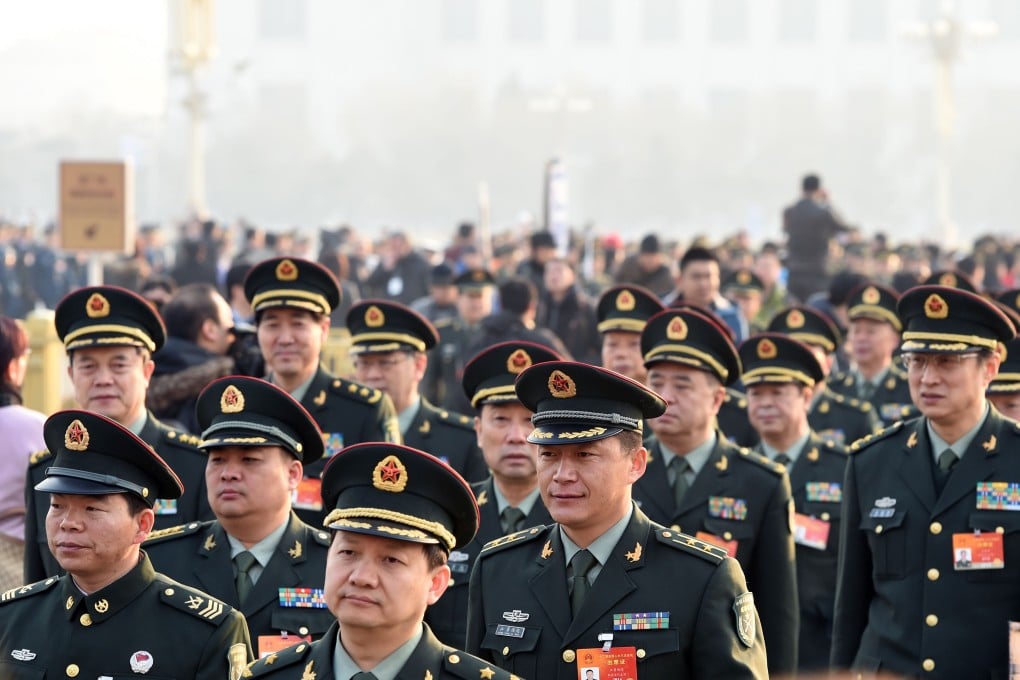New | Retired generals point to ‘horrible’ graft in PLA
Money, connections and personal bonds decide promotions, and the culture of confidentiality makes exposing wrong-doers difficult, former top brass says

All People’s Liberation Army ranks have a price, getting a Communist Party membership has a price, and important military positions are reserved for cronies, senior officers children and in-laws, three retired PLA major generals told local TV this week, addressing the “horrible” corruption in the military.
In the interview with mainland-tied Phoenix Television on Monday, the former senior officers called for reforms, from empowering the military anti-graft agency to improving defence spending transparency, to curbing rampant graft among troops.
“Everybody in society knows that in the PLA … you need to pay to join the party. Promotions to become leaders at platoon, company, regiment and division levels all have their own price tags,” said retired PLA Major General Yang Chunchang, who is a former department deputy head of China’s Academy of Military Sciences.
It has affected the security of the army. It’s too horrible, as bribes are in the scale of several tens of million [yuan]
“It has affected the security of the army. It’s too horrible, as bribes are in the scale of several tens of million [yuan],” he said in the TV interview.
Speaking of the disgraced Central Military Commission vice-chairman, General Xu Caihou, Yang said the top brass’ way to use and choose people is “number one, money; number two, connections; number three, their personal bond,” adding that Xu was not alone.
“After trouble loomed around Xu and others, their aides said they have too much power,” Yang said. “For a military area commander position … [despite] one bribing him 10 million, when the next bribes him 20 million, he will trash the first guy who give him 10 million.”

“Some people say that the corruption in the military is more serious than corruption at the local level. Why has such serious corruption occurred? It is because the army’s high level of centralisation and unification was being taken advantage of.